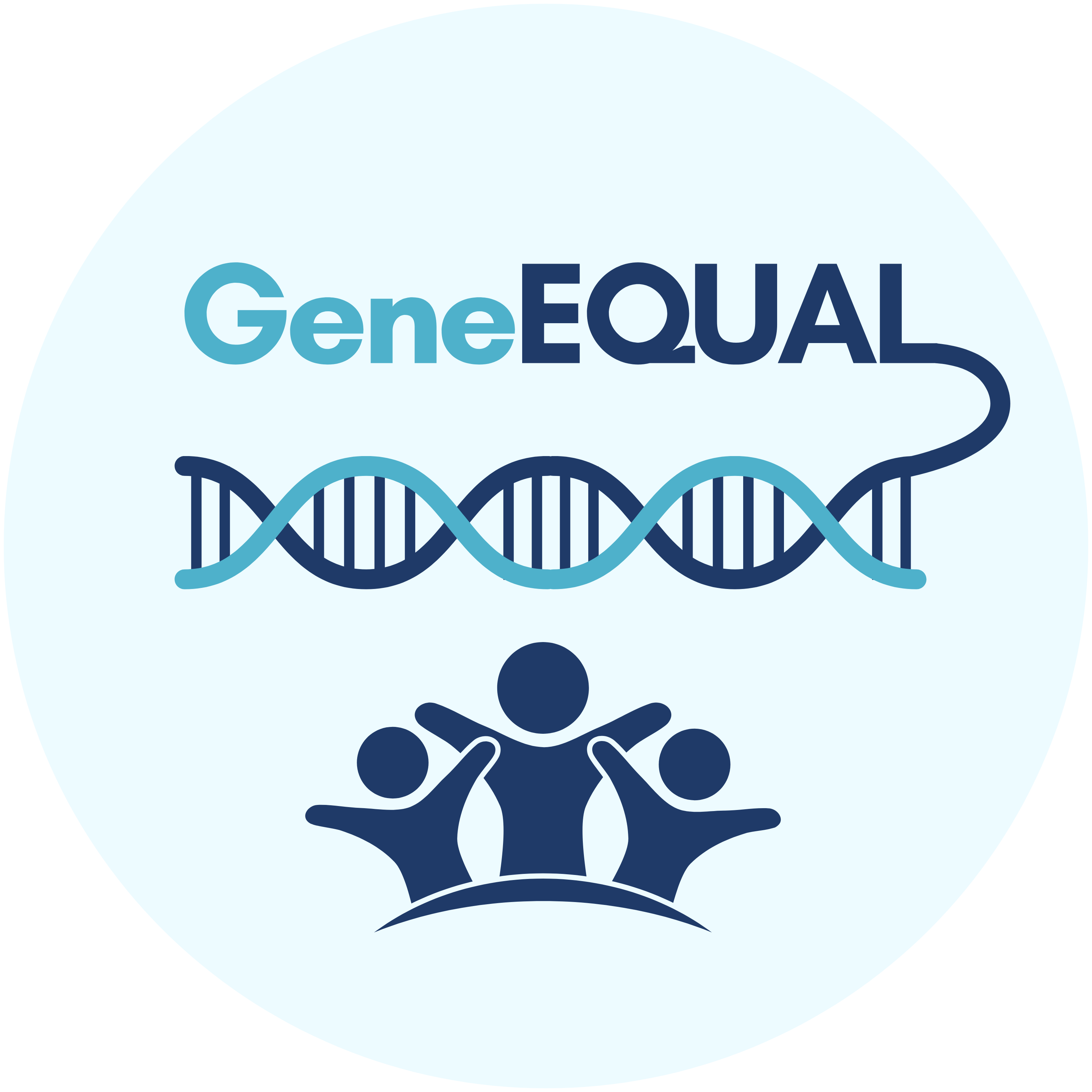What does co-production mean for the GeneEQUAL project?
In this short video members of the GeneEQUAL team talk about the GeneEQUAL Educational Toolkit – what it is and why it is important.
Transcript
Iva Strndová: "The GeneEQUAL project is about improving the genetic health care for people with intellectual disabilities that is respectful, accessible, and inclusive."
Emma Palmer: "Which means that we are working in partnership with people with intellectual disability to hear what they think should be changed about genetic health care."
Manjekah Dunn: "Today's workshop was a really wonderful opportunity to hear the voices and the feedback from people with intellectual disability on some of the co-designed and co-produced Easy Read resources that we made and the videos."
Iva Strndová: "And we got some absolutely amazing feedback and really just some new ideas of what we can do further."
Workshop participant: "I think this is a very, very helpful guide to help people with intellectual disability to access the right health service for them."
Workshop participant: "It's very easy to read."
Julie Loblinzk OAM: "It's very easy to read, yeah?"
Workshop participant: “It has all the key information, but it's like, it's a guide to talk with their patient at the same wavelength as them, in an easy to understand conversation."
Emma Palmer: "People really valued having both videos, that doctors should see both videos together to model some alternatives and strategies that they could use to make health care better."
Manjekah Dunn: "Another one of the key things that came out was that the videos are quite beneficial as well for people with intellectual disability and their support workers just to highlight what is better health care practice and what kind of care that they should be receiving and to empower them to get that care.
Workshop participant: "I didn't realise just how much I'd conformed to the first video. And once I saw that, things have started to change."
Workshop participant: [The doctor] "she showed how, like where to get support from. Yeah. So when she wanted somebody in the same position, she guided her and said, you can go to Facebook and this is the website as well. She gave the information."
Workshop participant: "And I appreciated that the doctor complimented Jess on a great question when it was asked."
Workshop participant: "It could be training, like compulsory training."
Emma Palmer: "As a doctor, I realise now how little I was taught about how to be a respectful doctor and how to truly work in partnership and appreciate the lived experience of people with intellectual disability. So for me personally, this project has been so eye-opening because it's shown how much needs to change about our health care, and the only way to change is to work together."
Workshop participant: "I think it was great that we were all included in the process of the development of this book because not only, you know, we gave our advice on the Easy Read but it also benefited us too in receiving that information about GeneEQUAL and what it's about and how it can help us."
Workshop participant: “Just knowing the impact and how many how many people can help us with health today."
Workshop participant: "And this is what GeneEQUAL is about. It's making things better.”
Why we made the GeneEQUAL educational toolkit
Filmed at Self Advocacy this short video has people with intellectual disability talking about the GeneEQUAL Toolkit and why co-production matters.
Transcript
Manjekah Dunn: “The GeneEQUAL Project is a multidisciplinary group of researchers and people with intellectual disability as co-researchers that aims to make genomic health care more inclusive and accessible to all by foremost listening to people with intellectual disability.”
Julie Loblinzk OAM: “It's about supporting people with intellectual disability and it's important to be able to make sure that there is better health care. Today's workshop was all about getting client feedback on the resources we developed with doing videos and booklets.”
Iva Strndová: “It really is an important step on achieving the goals of the National Roadmap for Improving the Health of People with Intellectual Disability. We got some absolutely amazing feedback and really just some new ideas of what we can do further.”
Emma Palmer: “So one of the key things we heard today is people really valued having both videos. They liked that health care professionals should see the first video and be reminded or maybe have pointed out to them things that they may be doing unconsciously, and then followed with the second video which gave them some great strategies of practical things that they could do to change their practice.”
Manjekah: “Some of the other things that came up today in the workshop was that people with intellectual disability felt it was valuable that they also saw the videos, and that support people and family members also were able to watch what good health care looks like so that we can empower them and they can recognise what good and bad health care looks like.”
Skye Sarfaraz: “I think this project is really important because we've seen people with intellectual disability speak up to their doctors or ask for things to be explained to them in a better way. So it's already making a difference.”
Emma Palmer: “I think what Skye said is so important that what we've heard from people here at SAS is even by being part of the co-production workshops they've learned more about their rights and the rights of all patients across Australia, and that's made a difference in their lives. So that's what we want to do. We want to make sure that everyone gets the right sort of health care, that they know their rights and that doctors know how they should be doing health care as well.”
